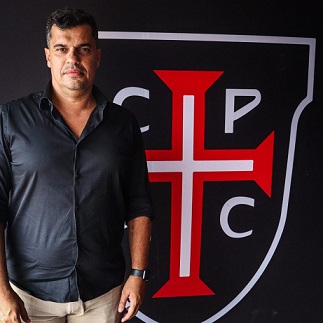 Back in Portugal’s top flight for the first time in 83 years, Casa Pia have made a sensational start to the season. Confounding all expectations, the historical Lisbon team currently occupy fourth position in the Primeira Liga standings.
Back in Portugal’s top flight for the first time in 83 years, Casa Pia have made a sensational start to the season. Confounding all expectations, the historical Lisbon team currently occupy fourth position in the Primeira Liga standings.
PortuGOAL wanted to find out more. In an exclusive interview with sporting director Diogo Boa Alma, some of the secrets of Casa Pia’s recent success are unveiled, in addition to the club’s ambitions for the future.
What persuaded you to embrace this Casa Pia project?
Because of the way the project was presented to me by Tiago Lopes, the CEO of the club and representative of the investor, Robert Platek. We identified with one another on a personal level immediately and I also identified myself with the club and the project it had, which led me to embrace it.
Diogo began working at Casa Pia in June this year. Looking from the outside, has the success of the club over the past two years surprised you?
Yes, looking from the outside it was surprising because it was a club that had been many years outside the first division. For 83 years it hadn’t played in the top flight and had been in the lower leagues, so this run over the last two years has been a surprise.
After getting to know the club from the inside, I could understand the reasons for this success with the level of organisation and the excellent professionals that I met.
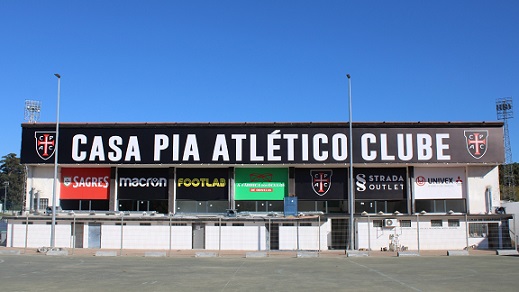 |
How do you explain the success of Casa Pia back in the top flight this season?
On the one hand, like I said, the organisation of the club and the competent professionals in every one of the areas explains it, where all the departments have competent staff, some of whom are now under my guidance.
Then we have the base that comes from the previous year in terms of the playing squad and coaching staff. We added a few new faces who brought more experience and quality, but there was already a very good foundation to work on from last season.
What are Casa Pia’s ambitions. I’m guessing a club of this dimension has a ceiling?
Our objective is clearly to stay up in the Primeira Liga, as soon as possible. The goal set for this season is to make sure we are still playing in the top flight next season.
There is no ceiling. Our ambition is to fight for the points in every match and we’ll see what position we finish in at the end of the championship. But the objective is solely to guarantee that next season Casa Pia is playing in the first division.
… so is it too early to think about qualifying for European competitions…?
Yes, clearly. This is not our objective for this year. It’s a medium-term objective for the club, but first we have to consolidate our place in the Primeira Liga. We need to create infrastructures, build the new stadium, improve the training facilities, all of this is an objective the club has so that in a few years we can fight to qualify for the European competitions, although of course we will try to finish as high as possible this year.
The two Lisbon giants completely monopolise the fans, resources, media attention, etc. in the Portuguese capital in terms of football. What’s left for Casa Pia?
No, there is space for everybody. Lisbon has other historical clubs like Belenenses, Atlético, and Casa Pia itself is a club with a long tradition here in the city and which has behind it an institution that has existed since 1780, the Casa Pia institution, a charitable institution, which makes it a club with its own very special place, owing to the entire history this institution has, which is at the genesis of the club. It’s an institution that is much loved and recognised not only in Lisbon but all over the country, and that’s why the club has supporters and people with a soft spot for the club throughout Portugal.
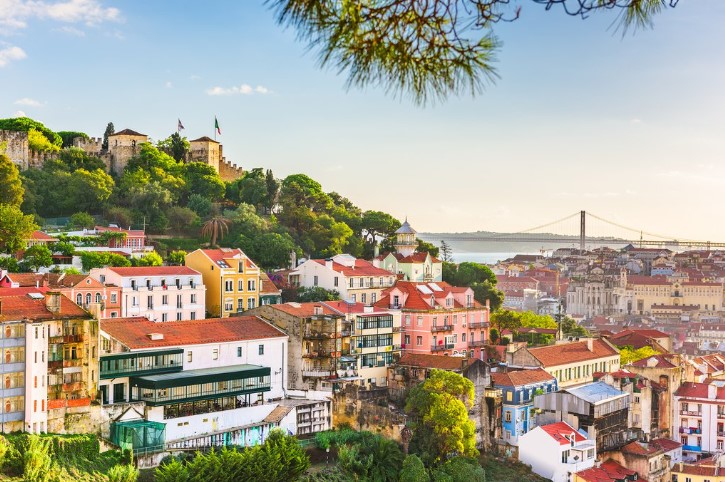 |
Does Casa Pia’s location actually bring some advantages in terms of location?
Yes, it’s an advantage for the club belonging to a big city like Lisbon, the capital of the country, and a very easy location to get to from anywhere. We can think of the large number of visitors who come to watch Benfica or Sporting and who then take advantage to see other clubs nearby, and without doubt it’s easier to attract players and to “sell” the club.
Casa Pia’s star player last season was Jota Silva, who was sold to Vitória SC in the close season. However, there has been no noticeable drop-off, with Saviour Godwin and Takahiro Kunimoto shining brightly in the attack. Is this Casa Pia’s model? To develop players, sell them, replace them, develop them, and so on?
Without a doubt. I think all clubs of this dimension in Portugal need to increase the value of their footballers and then make some player sales. Last year the secret of Casa Pia was in the collective, it was not in any one individual player. We had several players who were voted into the Team of the Year for the second division, we had the defence that conceded the fewest goals, we kept a clean sheet in 16 games, the goalkeeper Ricardo Batista was in the Team of the Year, as was defender Vasco Fernandes, our captain, and also Godwin was in the Team of the Year, so we had many players who were highly valued because of the collective success.
Here, this is the idea. First we think about the collective, because if we are in good shape collectively, each player individually will increase in value, and then we also want to help these professionals who served Casa Pia well reach higher levels, which leaves space for other players to come in the following year.
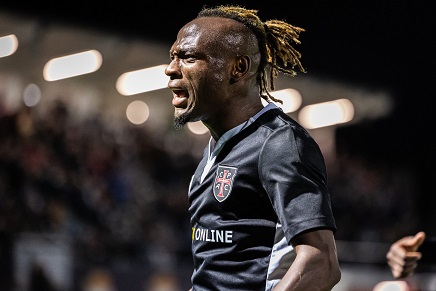 |
The arrival of Diogo to Casa Pia also led to the recruitment of Japanese forward Takahiro Kunimoto. When you were at Santa Clara you contracted Hidemasa Morita – now doing very well at Sporting – and Kyosuke Tagawa. Do you keep a close eye on the Japanese market and/or do you have contacts there?
Yes, it’s a market I keep track of and which I like a lot, and which along with our scouting department we monitor in detail. It’s a market where there is a lot of quality and where players are very keen to come to Europe and abdicate in financial terms a lot of money to realise their dream of being able to play in European football. And they are very professional, very disciplined players who are very focused on their job, on and off the pitch. They live and breathe their profession.
This is something that pleases the coaches, the directors, obviously, this culture of the Japanese player is very good and there is a lot of quality there. It’s a market we monitor with great interest. Kunimoto is doing what he’s doing and I believe he will develop even more because he’s a very high-quality player.
… those thoughts mirror what Rúben Amorim said recently about Hidemassa Morita, a player you must know well?
Yes, it was me who brought Morita to Portugal and as well as having immense quality, I’ve always said he is one of the most complete midfielders playing in Portugal, and he’s proving it at Sporting, that he has the quality to play at that level. Moreover, he is a very intelligent player tactically, but also very hard-working, very focused and I’m not surprised he’s where he is because he’s a player with an exemplary attitude and Kunimoto is another in this same line.
Who is involved in the process of scouting/buying/selling players? Does the coach have the final say?
It’s a team effort. We have our scouting department headed by chief scout Rui Ferreira, which monitors the players. On my part, I validate the opinions that come from the scouting department, the coaching staff is asked to observe the player when we are in the final analysis phase before contracting the player to give their opinion, and it’s then Tiago Lopes, our CEO, who has the final say to go ahead with contracting the player.
Talking of the head coach, Filipe Martins, he is closely linked to the recent success of Casa Pia. Are you worried you may lose him to another club and do you have a contingency play for if this happens?
As we talked about in relation to the players, it’s the same thing for the coaches. Increasing the value of the professionals who work for Casa Pia is one of our objectives. We will be very happy for Filipe and his coaching team – and it’s important to speak about the entire coaching staff and not only the head coach of the senior team. I believe that one day they may take this step forward and the club will be very happy if that happens.
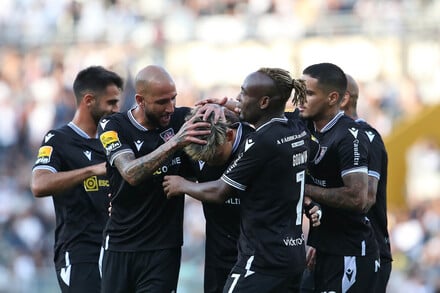 |
Finally, on a personal level, you worked for more than 5 years at Santa Clara. I can hardly think of a bigger change within Portugal than swapping the calm of the Azores for the hustle and bustle of the Portuguese capital. How have you adapted? Do you miss the Azores?
I’m from Lisbon. I was born and raised in Lisbon, so most of my life I lived in Lisbon, and finally I now work in my city! I’ve worked away for a long time and finally I am proud to be able to represent a club of my city.
I had a very good period in the Azores, I really enjoyed living there. Two of my three children were born there, and the oldest one had been born but was very young when we went there, so I will always have a very strong connection to the Azores – it’s a place that means a lot to me.
But my adaptation to Lisbon was very easy because it was here that I was born, it’s where I feel good, and where I feel at home. It was more difficult for the children because they were used to living in a more remote place, but they are also perfectly adapted now.
Tom Kundert was asking the questions. Our thanks to Diogo Boa Alma and Casa Pia Atlético Clube.

